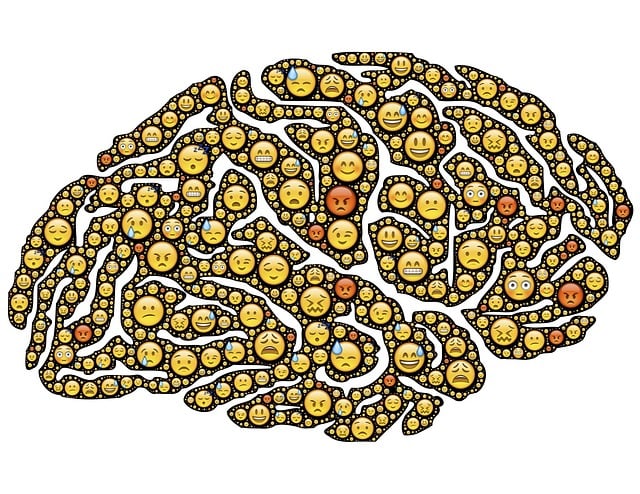Mental health professionals play a crucial role in assisting young adults (YA) dealing with gender identity issues, a demographic facing unique pressures like transitioning to adulthood and academic expectations. Effective therapy requires creating safe spaces for open dialogue about sensitive topics. Implementing community outreach programs enhances support systems and encourages clients to explore identities outside of therapy settings, contributing to holistic well-being. Nuanced approaches, such as mindfulness meditation and structured clinical interviews, foster trust, self-awareness, and coping mechanisms while reducing misconceptions, ultimately leading to more compassionate and effective treatment outcomes for YA navigating gender identity challenges.
Mental health professionals face unique challenges when treating young adults, particularly those grappling with gender identity issues. This article explores the intricate risks inherent in this field, offering a comprehensive guide for practitioners. We delve into understanding the specific risks faced by therapists working with young adults, examining the impact of gender identity concerns. Through a combination of risk assessment techniques and effective mitigation strategies, professionals can ensure safe and impactful therapy sessions. Discover practical insights for navigating these complex issues.
- Understanding Unique Risks in Young Adult Mental Health
- Gender Identity Issues and Their Impact on Therapists
- Comprehensive Risk Assessment Techniques for Professionals
- Strategies for Mitigating and Managing Risks in Therapy Sessions
Understanding Unique Risks in Young Adult Mental Health

Mental health professionals often encounter unique challenges when working with young adults, particularly those navigating issues related to gender identity. This demographic faces pressures distinct from older age groups, such as the transition into adulthood, academic and career expectations, and the exploration of one’s identity. Many young adults struggle with self-esteem improvement and emotional intelligence development during these formative years.
Therapy for young adults with gender identity concerns requires a nuanced approach. Professionals must be vigilant in creating safe spaces that foster open dialogue about sensitive topics. Implementing community outreach programs can enhance support systems, while also encouraging clients to explore their identities outside of therapy settings. Such strategies contribute to holistic well-being, addressing not just psychological symptoms but also the broader social and cultural influences impacting this vulnerable population.
Gender Identity Issues and Their Impact on Therapists

Gender identity issues can significantly impact therapists, particularly when working with young adults. As mental health professionals become more exposed to diverse gender presentations and experiences, it becomes crucial for them to develop a deep understanding of these topics to provide effective therapy. The process involves creating a safe and supportive environment that respects the individual’s self-identified gender, which is essential for fostering trust and encouraging open communication.
Therapists play a vital role in supporting young adults navigating their gender identity through various emotional healing processes. This may include integrating practices like mindfulness meditation to enhance self-awareness and coping mechanisms. Additionally, community outreach program implementations can help expand knowledge and reduce misconceptions about gender identity issues, thereby creating more inclusive therapeutic spaces.
Comprehensive Risk Assessment Techniques for Professionals

Mental health professionals play a crucial role in supporting individuals navigating complex journeys, from therapy for young adults struggling with gender identity to helping those dealing with emotional challenges. To deliver effective care, these professionals must employ robust risk assessment techniques. A comprehensive approach involves not just identifying potential hazards but also understanding individual strengths and coping mechanisms. Techniques such as structured clinical interviews and psychological assessments enable professionals to gather detailed information about clients’ histories, current circumstances, and risk factors, facilitating a more nuanced understanding of their emotional regulation capabilities and resilience-building opportunities.
Additionally, integrating self-care practices into the assessment process is essential for professionals to ensure they can provide sustained support. By incorporating strategies that promote self-care, such as mindfulness techniques or stress management training, mental health practitioners not only enhance their own emotional well-being but also model healthy coping behaviors for their clients. This holistic approach ensures that both the professional and the client benefit from the therapeutic process, fostering a safer and more supportive environment for addressing sensitive issues like gender identity concerns.
Strategies for Mitigating and Managing Risks in Therapy Sessions

In therapy sessions with young adults exploring gender identity, mental health professionals must adopt robust strategies for mitigating and managing risks. Building resilience is paramount; this involves equipping clients with adaptive coping mechanisms to navigate challenging emotions and experiences. Empathy-building strategies are instrumental in fostering trust and understanding, enabling professionals to create a safe space where clients feel heard and validated during often tumultuous transitions.
Regularly scheduled stress management workshops within organizations can further support professionals’ well-being, enhancing their capacity to provide consistent care. These workshops should incorporate evidence-based techniques like mindfulness practices and cognitive reframing. By prioritizing self-care and resilience, mental health professionals can better manage the unique risks associated with therapy for young adults navigating gender identity issues, ultimately contributing to more effective and compassionate treatment outcomes.
Mental health professionals play a crucial role in supporting young adults navigating therapy, especially those dealing with gender identity issues. By understanding the unique risks associated with this demographic and employing comprehensive risk assessment techniques, therapists can ensure safer and more effective treatment. Integrating strategies for risk mitigation during therapy sessions fosters a supportive environment, enabling professionals to address sensitive topics effectively while safeguarding their well-being. This holistic approach, focusing on both patient care and professional resilience, is essential in providing quality mental health services tailored to young adults exploring gender identity.














